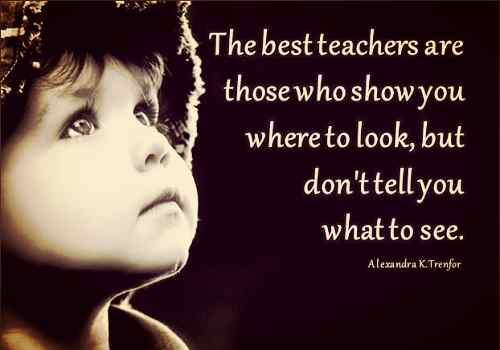Categories(658 Blogs)
Select Category
Watch Right Now
Teacher App - Class
Schedule & Attendance Management App
Parent App from Edsys

Best School Bus Tracking System

Cashless School - For Smart Schools of Tomorrow


Why Is It Important For Teachers to Study Philosophy of Education

The field of education is constantly evolving, and teachers need to stay ahead of the curve to ensure their students are receiving the best possible education. One way to do this is to become well-versed in the philosophy of education.
By understanding the history and theories behind education, teachers can gain a deeper understanding of their role and the impact they have on their students. With this knowledge, teachers can develop a teaching style that best supports their students’ needs. They can also better identify any gaps in their students’ knowledge and adjust their curriculum accordingly. By unlocking the power of philosophy, teachers can gain invaluable insight into their profession and their students’ learning.
Get More FREE Teachers Apps (Check it Now)
Students always look up to their teacher and therefore, it becomes necessary for you to have thoughts to inspire them.
Here are specific reasons why you should study philosophy of education if you are a teacher.
The philosophy of education is important because it provides a basis for understanding the nature and purpose of education. It allows us to consider the questions that are at the heart of education, such as: What is the purpose of education? How should students be taught? What knowledge and skills should students be taught? How should students be assessed?
It also allows us to examine the impact of different educational theories and practices on students’ learning. It helps us to consider the ethical and moral implications of educating students, and to think about the role of technology in education. By understanding the philosophy of education, teachers can gain valuable insight into their profession and their students’ learning.
Helps to Decipher The Path of Learning
Teaching philosophy has been defined as the map, which provides directions to move ahead.
One may feel lost without a map. In the same way, you are going to be missed while teaching if a specific path is not decided.
Hence, a map is always needed to make informed movements.
It is not possible to make students learn something until the teacher knows why and how he/she wants to teach.
Once you know your path, you will be helping your students to plan to reach their destinations.
Affects the Society
Teachers are termed as the future makers of the community. People like you are the ones who help students choose different professions and identities.
A teacher can leave a profound impact on students and help them make independent decisions in the near future.
The core values that your students learn from you today are going to be applied and used in society as they grow up.
A solid philosophical background will help ensure that these values are all positive.
Also Read: General Knowledge For Kids with Answers(105 Questions and answers)
If you believe in breaking stereotypes, there are high chances your students will follow the same philosophical path. If your philosophy is accepting the already existing theories, rather than questioning them, your students might follow your path.
Understanding the philosophy of education will teach them the need to know the whys.
Along with the intellectual development of the students, it will also improve the standards of our society and make us more rational.
To Be in Their Shoes
By learning philosophy, a teacher would be able to view and analyze from the perspective of their students.
Apart from understanding why students are behaving in a particular way, teachers would also be able to know how students perceive their actions.
This helps them adapt better teaching strategies and guidance, eventually resulting in improved results.
Best of all, a teacher would be able to analyze his/her actions and understand the positives and negatives of their methods.
Just as if it helps students, it helps them as well. In other words, the educational curriculum consisting of philosophy contributes to discovering the mind of the learner (student), thus aid him/her in offering experiences and opportunities for cultivating his/her potential abilities.
Get More FREE Teachers Apps (Check it Now)
To Avoid Being Judgemental
Philosophy of education also teaches a teacher the concept of not prejudicing the personality of each student. Remember that you need to consider all students equal.
But this should not affect the unique potential and capabilities of each student.
As educators, you are required to teach creativity, autonomy, and curiosity to all students without compromising their intellectual levels.
The idea is to avoid giving up on a pupil, who is a low-level learner. Philosophy teaches you that ideology, where you train with an unbiased attitude.
To Teach The Concept of Unification
Philosophy also teaches about unifying each pupil and the teacher as one body to ensure harmony.
The idea is to work together to create a better citizen, who diligently serves his community and keeps check on his/her morality.
Through the philosophy of education, teachers can understand how to deal with the students and unite them as one.
Even the students will then be able to confidently speak to the teacher as if he/she is their friend.
Tips for integrating philosophy in the classroom
The philosophy of education has a profound impact on student learning. By understanding the history and theories of education, teachers can gain a deeper understanding of their role and the impact they have on their students. This understanding can then be used to develop lesson plans that best support their students’ needs and help them to reach their full potential.
Furthermore, by understanding the different theories and philosophies of education, teachers can better identify any gaps in their students’ knowledge and adjust their curriculum accordingly. By unlocking the power of philosophy, teachers can gain invaluable insight into their profession and their students’ learning.
Resources for teachers to explore philosophy of education
There are a number of resources available to teachers who are interested in exploring the philosophy of education. Here are a few of the most popular resources:
- The Stanford Encyclopedia of Philosophy: This encyclopedia contains a comprehensive overview of philosophy and its role in education.
- Education Theory and Practice: This book provides a comprehensive overview of the history, theories, and philosophies of education.
- The Internet Encyclopedia of Philosophy: This encyclopedia contains a wealth of information about the history and theories of philosophy, as well as its impact on education.
- Philosophy of Education: This book provides an overview of the history and theories of philosophy, as well as its implications for education.
By exploring these resources, teachers can gain a deeper understanding of the philosophy of education and its implications for their profession and their students’ learning.
The Verdict
Through philosophy, you can ensure that your student not only retains his academic knowledge from all his completed grades but also develop a sense of humane values and ethics.
Also Read: Top 17 Best Apps For Teachers and Educators
These personal values provide a better upbringing for them to cope in the later years of their life.
Thus, studying it is beneficial and significant for teaching students to learn autonomously.
Recent Blogs
Our Educational Services
Popular Blogs
Subscribe

SUBSCRIBE TO OUR NEWSLETTER
Sign Up and Recieve the Latest News
Don’t Worry, We Don’t SpamExplore Our Extensive Researched Educational App Directory
Visit Now















